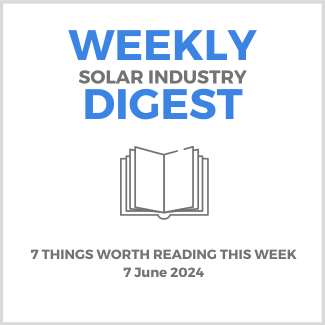Longi, one of the largest global panel manufacturers, said it would adjust production plans amid a “complex industry environment.” They say issues like digital tech, price changes and trade policy adjustments, like the recent US steep tariff hikes on Chinese components, plus excessive capacity and fierce competition have complicated things for the company.
The most recent edition of Kiwa PVEL named a record 53 manufacturers and 388 model types as “Top Performers” in one or more tests. 8 manufacturers were named as Top Performers in all categories. New factors considered this year were hail, a higher bar for certain Top Performers, and key takeaways on the impacts of some cell tech and module design.
Apparently, AI can help companies better manage community solar subscribers. The tech has been used to provide a more accurate and fair way of vetting potential subscribers, more efficiently manage waitlists of aspiring subscribers and get them more quickly enrolled, and predict when certain subscribers may be vulnerable to churn so companies can proactively reach out to subscribers.
Wood Mackenzie examined the impact of the Inflation Reduction Act on the solar supply chain and clarified the numbers. There have been 144 GW of announced module manufacturing capacity, 71 GW of cell manufacturing capacity and 61 GW of wafer manufacturing capacity by 2027. However, Wood Mac predicts only about 45% of module capacity, 25% of cell capacity, and 5% of wafer capacity will actually come to fruition.
A report found that clean energy and transportation investment got to an all-time high Q1 2024 at $71 billion with twice as many investment announcements compared with last quarter. Q1 2023 saw $51 billion in new investments, while the entire year of 2018 saw $78 billion. Solar is experiencing some uncertainty from interconnection delays, project delays, component shortages, and uncertainty re interest rates and IRS guidance for the IRA.
The CPUC approved a revised proposed decision on CA’s community solar program that makes only minor changes to existing community solar programs – a move supported by the state’s major investor-owned utilities. They rejected a different proposal by a coalition including the solar industry, ratepayer advocacy groups and labor unions to begin a new program based on a Net Value Billing Tariff, which would have compensated community solar subscribers based on the value of a project’s generation at the time it’s provided to the grid.
In this Suncast episode the CEO of financing and advisory firm Enduring Planet offers advice for securing and managing funding in climate tech and talks about overcoming hurdles faced by climate entrepreneurs, his company’s grant advance product, and why non-dilutive capital is important for early-stage companies. The video is below.

